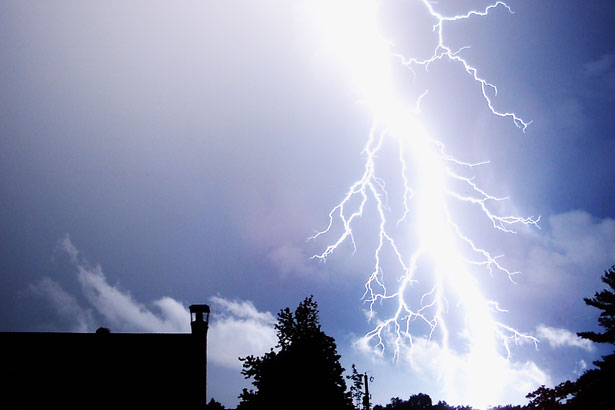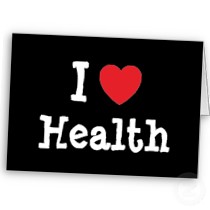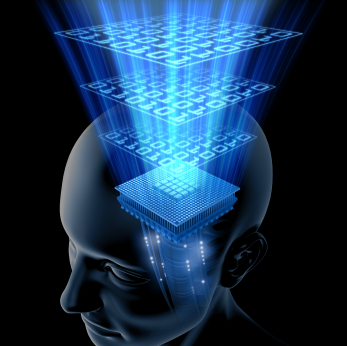Heart / Chest

Heart Push
The heart is the center of vitality. How do you tell if a body has no life? Check the heart beat or pulse. The heart generates the energy which pushes communication through the body. Without this communication, without this motion of particles from one place to another, life does not exist. The better that this communication and motion is occurring, the more life and vitality is in the body and the stronger the body is against stresses. Particles have standard pathways and routes whether the particles are nutritional such as sugar and oxygen in the blood or whether the particles are more electrical in nature as in the nervous system. It is the heart that is responsible for providing the energy which impels these particles along these pathways whether they be vessels or nerves or possibly even acupuncture meridians.
That the heart pushes the blood and its contents through the blood vessels is certainly common knowledge. That the heart plays a role in nerve function may not be. A heart that is not functioning correctly will adversely affect the nerves of the body. A person whose heart is weak will often experience numb hands and fingers and nerve problems everywhere will be magnified. You could make a case that this is simply because oxygen is not getting to the tissues and that is why the hands for instance are numb. Yet anyone who has experienced hands or feet that have “fallen asleep” from lack of circulation and also has experienced numb hands from a weak heart knows that these are not the same at all. The nerve problems of these “weak heart” patients also are worse when the body is the most tired and run down. The eyes are often affected and the eyesight may be worse at the end of a long day. The nerves to the involuntary muscles of the body may be affected resulting in muscle tone problems. This includes internal muscles such as the abdominal muscles that hold internal organs in place and keep your tummy tight. It also includes involuntary muscles to the spine that help to hold your spine in proper position. Furthermore, the muscles of the soft palate may lack proper muscle tone resulting in excess snoring and some types of sleep apnea.
If the nerves are very low in energy the nerves to the digestive organs may be affected. This can affect the function of the digestive valves, muscle tone and peristalsis* of the intestines and the turning “off and on” of digestive secretions. Vocal cord muscles which require precision tone may also be affected and muscles in general all over the body may feel weaker. This is not from lack of muscle energy per/se but rather from lack of proper nerve electrical control.
People with weak hearts also tend to experience a manifestation not so easily explained. They tend to get depressed and go mental easily. This is simply an observed phenomena. The opposite also appears to hold true. Those with a strong heart tend to be stronger against emotional and mental stresses. Another closely related observed phenomena is that people under a lot of stress, those with lots of problems, burdens and losses (or threat of losses) tend to have their heart show up as needing extra help. Our culture has evidently known this as we have inherited such terms as “broken hearted” and we say such things as “he is lion hearted” or “he has a stout heart” meaning he is strong against emotional stresses. A heart that is not working well in the electrical/nervous system arena may or may not be working well with regards to blood circulation. A person may have normal blood pressure, clear arteries and normal heart tests.
It is possible that feed back from the heart to the brain is so important that if this feed back from the heart is incorrect it throws the electricity of the entire nervous system off. It could be a more direct effect. The heart may play a role in generating electricity that is used by the nervous system. It has been found that the heart, when it beats, generates an electric field that can be picked up by a special magnetometer from 15 feet away.**That’s a lot of electricity! The general view of the nervous system is that the brain is some kind of battery that generates electricity from chemicals like a car or flashlight battery. Makes sense. Don’t batteries need to be recharged? I suppose that energy produced in individual nerve cells might do it. It seems to me like it would be a terrific waste of energy for the amount of electrical energy that is being generated by the heart to not be used. Hence it has been theorized by some that at least a part of this electrical energy is somehow captured for use by the nervous system. The internal brain no doubt regulates the use of this captured energy as it performs various functions of nervous system and muscle regulation.
Many things can affect the heart and it’s function. Any of the basic causes of disease (Allergy, Infection, Nerve Injury, Chemicals, etc.) may affect the heart and those things which regulate the heart. The principle regulators of the heart are the nerves and hormones. The main nerves that affect the heart come from the upper back, base of the neck area, and the internal brain via the long vagus nerve. If the heart has a problem and is complaining this may cause a reverse flow and result in a tight upper back and base of the neck muscle tightness. It may also result in pressures and pains and tightness at the base of the skull where the vagus nerve exits the brain. Sometimes the nerve complaints can spill over into the nearby brain area responsible for balance (vestibular nucleus) and the person can get light headed or dizzy.
The main hormones that regulate the heart are the adrenal glands and the thyroid. Malfunctions with both the nerves to the heart and hormones may result in heart palpitations or irregular heart pounding and associated anxiety. If the person has problems with the thyroid gland, adrenal gland and nerves to the heart all at once the heart may be getting so many conflicting messages that it may “freeze up” for a split second and the body will push a reset button just like on your computer. When this happens you pass out.
Heart pain occurs when there is a lack of blood flow to the heart tissue. More on this later, however, it is important to know that there are different types of this. Commonly the pain is said to occur from occlusion of the arteries by plaque. This most often produces (but is not limited to) a heavy compression type of pain in the chest and/or arm. Pain may also occur from a problem with the nerves to the arteries of the heart. A nerve malfunction in this area can cause spasms of the arteries to the heart which then prevent normal blood flow. It most often causes a sharp stabbing type of pain that may radiate to other areas including the head and jaw. The later one is very difficult to detect when compared with the first. Since it is the nerves to the arteries of the heart, not the nerves of the heart itself, it doesn’t show up on the Electrocardiogram or on arterial flow tests.
In summary, we need our heart to work right. If it doesn’t work right, we don’t work right and there is a very large list of symptoms that are related to a heart that needs support. It’s not just about arteries and blood pressure. It’s about giving the heart the nutrition that it needs to do it’s job of bringing life and vitality to the body. If you are concerned about heart health or are concerned for those close to you, contact the office at (260) 459-6160 (Ft. Wayne) or (773) 929-3964 (Chicago).
*Peristalsis- The automatic muscular movement, consisting of successive wavelike contractions and relaxations by which the contents of the digestive tract are propelled along it.
** It has recently been discovered that magnetic tissue exists in the heart. Since electrical generators work by passing iron through a magnetic field and the blood has iron in it, an interesting possibility exists for generating a type of electricity in the body.
Dr. David Murdock, D.C.











